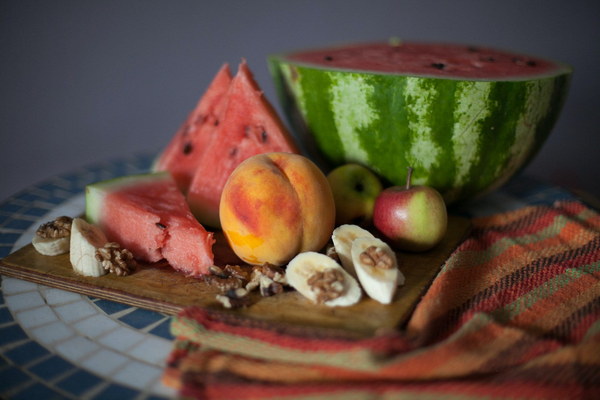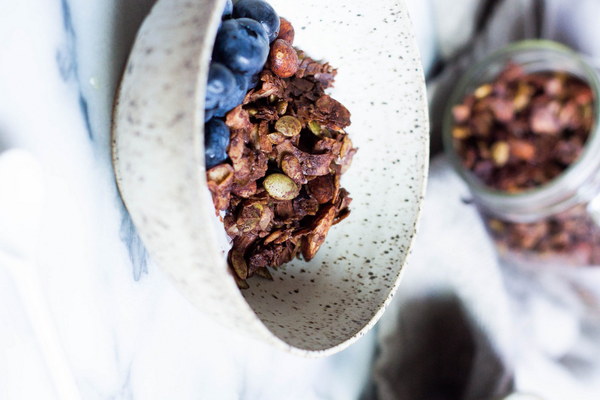Unveiling the Secrets A Comprehensive Guide to Traditional Chinese Herbs for Lung Detoxification
In the realm of traditional Chinese medicine (TCM), the lungs play a vital role in the body's overall health. The lungs are responsible for filtering and purifying the air we breathe, and any impurities can lead to respiratory issues. To maintain a healthy respiratory system, TCM offers a variety of herbal remedies that can help clear the lungs. This article delves into the world of TCM and highlights the most effective herbs for lung detoxification.
1. Baical Skullcap (Scutellaria baicalensis)
Baical Skullcap is a potent herb known for its anti-inflammatory and detoxifying properties. It is often used to treat respiratory conditions such as bronchitis, pneumonia, and asthma. The active compounds in Baical Skullcap, such as baicalin and wogonin, have been shown to reduce lung inflammation and improve respiratory function.
2. Elderberry (Sambucus nigra)
Elderberry is a well-known herb that has been used for centuries to treat respiratory infections. Its high content of flavonoids and antioxidants helps to strengthen the immune system, making it an excellent choice for lung detoxification. Elderberry can be consumed in various forms, including tea, syrup, and lozenges.
3. Licorice Root (Glycyrrhiza uralensis)
Licorice Root is a versatile herb with a sweet, soothing taste. It is commonly used to treat respiratory conditions due to its anti-inflammatory and expectorant properties. Licorice Root can help to thin mucus, making it easier to expel from the lungs. Additionally, it has been shown to improve lung function and reduce the risk of respiratory infections.
4. Mulberry Leaf (Morus alba)
Mulberry Leaf is another herb that can be beneficial for lung detoxification. It contains antioxidants and anti-inflammatory compounds that help to protect the lungs from damage caused by pollution and other environmental factors. Mulberry Leaf is often used in combination with other herbs to treat respiratory issues such as coughs, colds, and bronchitis.
5. Peppermint (Mentha × piperita)
Peppermint is a popular herb known for its cooling and soothing properties. It is often used to treat respiratory conditions such as bronchitis, asthma, and sinusitis. Peppermint contains menthol, which helps to relax the muscles in the lungs and reduce inflammation. Additionally, peppermint can help to thin mucus and improve overall respiratory function.

6. White Mulberry (Morus alba)
White Mulberry is closely related to Mulberry Leaf and shares many of the same health benefits. It is often used in TCM to treat respiratory issues such as coughs, colds, and bronchitis. White Mulberry contains antioxidants and anti-inflammatory compounds that can help to protect the lungs from damage.
7. Thyme (Thymus vulgaris)
Thyme is a well-known herb used in culinary dishes, but it also has medicinal properties that make it beneficial for lung detoxification. Thyme contains thymol, a compound that has been shown to have antibacterial, antiviral, and anti-inflammatory properties. It is often used to treat respiratory infections and can help to clear mucus from the lungs.
8. Ginger (Zingiber officinale)
Ginger is a versatile herb with a wide range of health benefits, including lung detoxification. It has been used in TCM for centuries to treat respiratory issues such as coughs, colds, and bronchitis. Ginger contains gingerol, a compound that has anti-inflammatory properties and can help to reduce lung inflammation.
In conclusion, traditional Chinese medicine offers a variety of herbal remedies that can help to detoxify the lungs and improve respiratory health. By incorporating these herbs into your daily routine, you can enjoy a healthier, more vibrant life. However, it is important to consult with a qualified TCM practitioner before starting any new herbal treatment to ensure it is safe and appropriate for your specific health needs.









